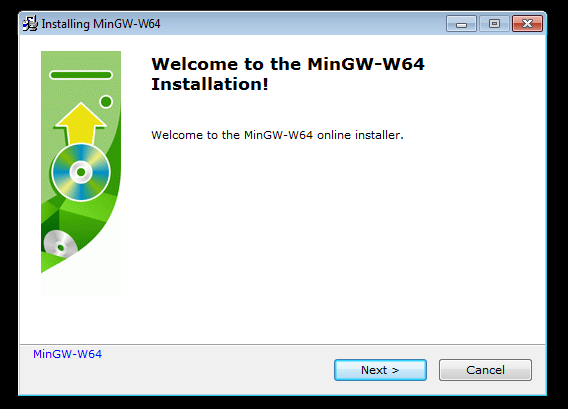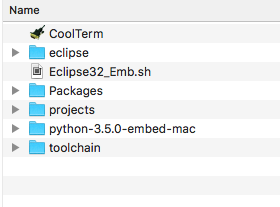

Stick it to your task bar so it's always to hand. From the Windows start menu, open up Octave and you will find the bash shell. Octave: Octave 6.1 comes with gcc/gfortran-9.3.1.

Use at your own risk)Ĭygwin: The Cygwin project offers up-to-date builds of GCC and gfortran MinGW 32/64bit builds by (builds were announced at note - is not affiliated with any MinGW or GCC developer. above) you might search for the file in Toolchains targetting Win32 (Personal Builds or Automatized Builds). mingw-w32-bin_i686-mingw_.zip runs on and generates binaries for 32bit Windows (cf. The MinGW for Win64 project has also binaries for 32bit Windows e.g. Official MinGW builds (only releases), last seen was 6.3.0 () The file name pattern is - thus, mingw-w64-bin_x86_64-mingw_20100527.zip is a compiler targeting 64bit Windows ( mingw-w64) but also running ("host") on 64bit Windows ( xx86-64-mingw) you might search for the file in Toolchains targetting Win64 (Personal Builds or Automatized Builds). They provides several compilers, which run on Windows (32-bit and 64-bit Windows), Cygwin, Linux, and Darwin/MacOS - and which generate binaries for 32bit or 64bit Windows. MinGW for Win64: The Mingw-w64 project has regularly updated snapshots of compilers generating 64-bit Windows executables. If in doubt, or if you don't know what Cygwin and MinGW are, the package for you is the MinGW ("native Windows") package! Most of the builds below come from gfortran maintainers but not all. Note: There do not exist any official FSF/GNU/GCC binary builds (only source packages). For handing in the executable, simply dig around in your project's folder->Build->Development->yourexecutablehere.This page gathers links to all unofficial gfortran binary packages people regularly build, based on the current development gfortran source code. For Xcode, it's as simple as pressing the Build & Run button, and a console window should pop up. Whoops, misread your post! ) I thought you were using gcc/g++, not Xcode.
MINGW MAC MANUAL
You can also use gcc to link and compile multiple files see the gcc manual for a very detailed guide:

myfileĪlternativey, you can skip the object file step and directly compile the file into an executable: # gcc myfile.c -o myfile Which will create an executable named "myfile". If you want to link an object file into an executable, you can do the following: # gcc myfile.o -o myfile If you look in the directory where the source is, you should notice a file with the same name, but ending in. No output on the console is good it means that no errors occured. Using the command I gave previously basically compiles your source into an object file, so it can be linked with any other object files and turned into an executable.
MINGW MAC HOW TO
Sorry, I assumed you knew how to use gcc. Compiling Linux apps is best left to another Unix-tool wrapper, though. Thus, if you have Xcode already installed, using gcc is as simple as opening up the terminal (/Applications/Utilities/Terminal) and entering something like # gcc -c myfile.cĪnd it should work. However, Xcode is merely an IDE - the actual Unix compilers it uses, such as g++ and gcc are installed along with Xcode.
MINGW MAC FREE
Xcode, Apple's IDE can be installed from the Apple Developer disc or downloaded from their website with a free Developer Account.
MINGW MAC MAC OS X
Mac OS X by default does not come with any C/C++ compilers. Ravalon's link is not much good, since you'll have to do a lot of hunting to find gcc for FreeBSD that's compiled for the correct processor that's contained in your Mac. It can run all tools that Unix/Linux can run, although since it's Unix clone, it's a bit modified and often Linux programs need to be modified to compile on Mac OS X

Mac OS X is indeed a POSIX operating system, built on top of FreeBSD, which is a Unix clone. Alright, a little bit of information here.


 0 kommentar(er)
0 kommentar(er)
